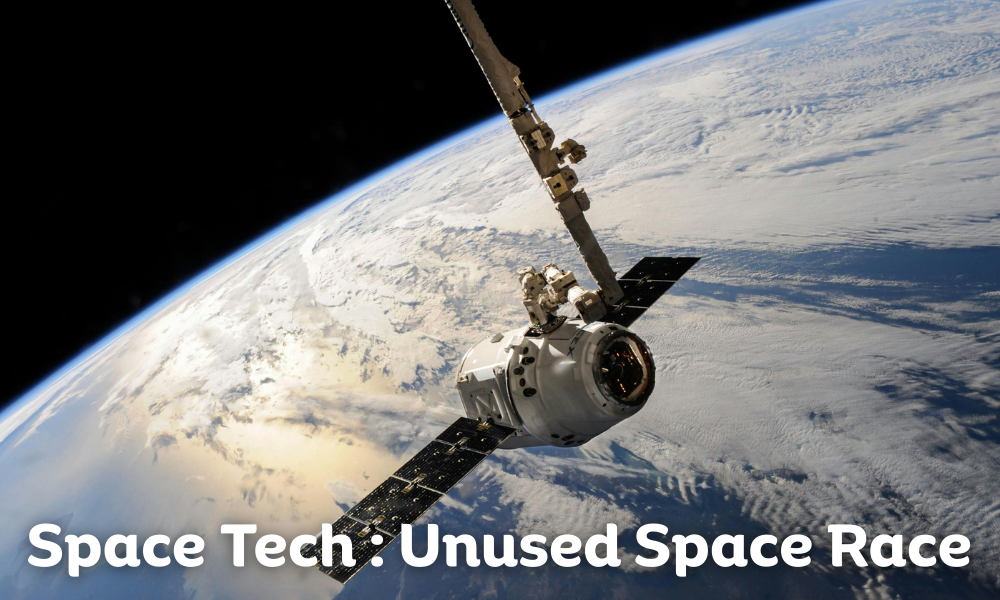Space Tech: How Private Companies Are Forming the Unused Space Race
For much of the 20th century, space investigation was overwhelmed by governments. The Cold War competition between the Joined together States and the Soviet Union started the unique space race, driving to point of interest accomplishments such as the moon landing. But in the 21st century, a modern space race is underway—this time driven not by countries, but by private companies. Space innovation, once a space of billion-dollar government budgets, is progressively being molded by entrepreneurial vision, advancement, and competition.

From Government Ventures to Commercial Ventures
In the past, as it were government offices like NASA, Roscosmos, or ESA had the assets to send rockets, satellites, and space travelers into circle. Costs were colossal, and missions were frequently tied to political motivation. That started to alter in the early 2000s, when a wave of private companies entered the field, driven by both aspiration and opportunity.
Firms like SpaceX, Blue Beginning, Rocket Lab, and Virgin Galactic have changed the financial matters of space travel. Their victory lies not as it were in mechanical breakthroughs but moreover in creating commerce models that make space missions more feasible and cost-effective.
SpaceX and the Reusable Rocket Revolution
No company has reshaped space innovation more than SpaceX, established by Elon Musk in 2002. Its greatest development is the reusable rocket. Conventional rockets were disposed of after a single utilize, making space dispatches restrictively costly. SpaceX’s Bird of prey 9, in any case, can arrive back on Soil and be utilized once more, radically decreasing costs.
This accomplishment has made toady dispatches and cargo missions to the Universal Space Station (ISS) more reasonable, whereas moreover empowering NASA to depend on private industry for transportation. Past Earth’s circle, SpaceX has driven plans for Damages colonization through its Starship venture, situating itself as a pioneer in the future of human spaceflight.
Blue Beginning and Space Tourism
Founded by Jeff Bezos, Blue Root has taken a diverse approach by centering on space tourism. Its Modern Shepard rocket is outlined to take travelers on suborbital trips, giving civilians the chance to involvement weightlessness and see Soil from space. Whereas still in its early stages, space tourism might ended up a multi-billion-dollar industry in the coming decades.
Beyond tourism, Blue Root is too working on heavy-lift rockets like Unused Glenn, pointed at competing with SpaceX for partisan dispatches and deep-space missions.
Expanding the Space Economy
Private space companies are not fair building rockets—they are making an whole space economy.
Satellite Sending: Firms like Rocket Lab are specializing in propelling little satellites, fueling businesses such as broadcast communications, route, and Soil observation.
Space Stations: Companies like Adage Space are arranging commercial space stations that seem inevitably supplant the ISS.
Lunar Investigation: With NASA’s Artemis program pointing to return people to the moon, private companies are playing a basic part in building landers, cargo frameworks, and lunar infrastructure.
Mining and Assets: A few new businesses are investigating the potential of space rock mining, which seem give uncommon minerals basic for hardware and renewable vitality technologies.
The privatization of space is turning what was once government-driven investigation into a commercial marketplace.

Challenges on the Horizon
While private companies have brought development and competition, challenges remain:
High Costs: Indeed with reusable rockets, space missions are still costly and risky.
Regulation: Worldwide space law has not kept pace with commercial extension. Questions around possession, obligation, and asset rights are unresolved.
Safety: Human spaceflight is inalienably unsafe, and mischances seem moderate open enthusiasm.
Environmental Concerns: Rocket dispatches contribute to climatic contamination, and space flotsam and jetsam postures dangers to satellites and future missions.
These obstacles highlight the require for collaboration between governments and private companies to guarantee that advance is feasible and ethical.
The Modern Space Race: Collaboration or Competition?
Unlike the Cold War-era space race, today’s competition is less around political dominance and more approximately financial opportunity and mechanical authority. In any case, this does not cruel governments are out of the picture. In reality, offices like NASA are progressively collaborating with private firms, outsourcing missions and depending on them for innovation.
This mix of public-private collaboration seem demonstrate to be the most successful demonstrate for space investigation. Governments give subsidizing, administrative systems, and long-term objectives, whereas private companies bring nimbleness, proficiency, and entrepreneurial drive.
Looking Ahead
The modern space race is not around planting a hail on the moon—it’s almost building a economical human nearness past Soil. Whether it’s colonizing Defaces, mining space rocks, or making a flourishing space tourism industry, private companies are driving the charge.
In the another two decades, space may move from being a wilderness investigated by a few space travelers to a flourishing biological system including researchers, business visionaries, visitors, and indeed pioneers. This change would not as it were extend humanity’s reach into the universe but too reshape businesses on Soil, from communications to energy.
Conclusion
Private companies have moved space innovation from government ventures into commercial reality, reclassifying what is conceivable. SpaceX’s reusable rockets, Blue Origin’s tourism wanders, and a developing environment of new companies are fueling a unused period of exploration.
The travel is fair starting. Challenges like fetched, security, and direction stay, but the energy is relentless. The unused space race is not a contention between countries but a association between governments and private trend-setters. Together, they are forming a future where space is not fair the last frontier—but the another commercial center for human advance.
Autonomous Vehicles: Are We Ready for the Self-Driving Future?








